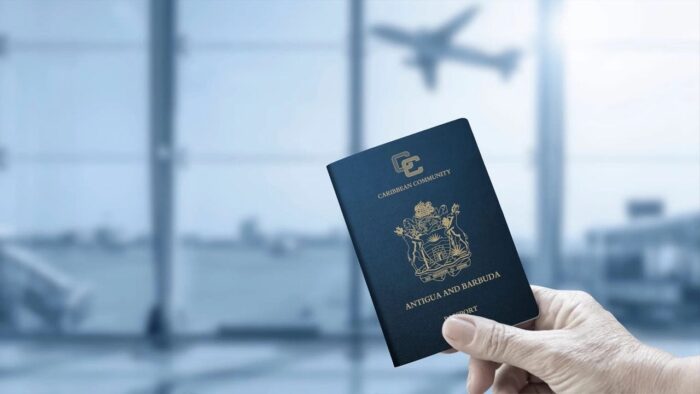
The Caribbean, a region known for its vibrant cultures, diverse traditions, and breathtaking landscapes, is also a treasure trove of literary richness. Beyond the sun-kissed beaches and swaying palms, the Caribbean literary landscape unfolds a tapestry of stories, voices, and perspectives that captivate readers and offer profound insights into the complexities of island life. In this exploration, we delve into the depths of the Caribbean literary world, unveiling the narratives, authors, and literary traditions that shape the region’s compelling literary identity.
The Caribbean’s literary tapestry is woven with a myriad of voices, reflecting the complex history of the region. From the impact of colonization and the struggles for independence to the celebration of cultural resilience, Caribbean literature encompasses a diverse array of themes and narratives. The islands’ histories are told through the eyes of storytellers who navigate the intersections of identity, race, class, and the search for belonging.
The Impact of Colonial Legacies
Caribbean literature often grapples with the enduring legacies of colonialism, exploring the socio-economic disparities and cultural clashes that persist. Authors such as Jamaica Kincaid, born in Antigua, offer poignant narratives that peel back the layers of colonial influence and reveal the intricate relationships between the colonizer and the colonized.
Cultural Resilience and Identity
At the heart of Caribbean literature lies a celebration of cultural resilience and the forging of identity. Writers like Derek Walcott from Saint Lucia draw inspiration from the rich tapestry of Caribbean cultures, infusing their works with the vibrancy of local languages, folklore, and traditions. These narratives become a testament to the strength of Caribbean communities in preserving their unique identities.
Literary Luminaries ─ Influential Caribbean Authors

The Caribbean has produced a constellation of literary luminaries whose works resonate globally, earning acclaim for their exploration of universal themes within the Caribbean context. These authors, whether born in the islands or part of the diaspora, have left an indelible mark on world literature.
1. Derek Walcott (Saint Lucia)
A Nobel laureate in literature, Derek Walcott’s poetic works, such as “Omeros” and “The Bounty,” are revered for their lyrical beauty and exploration of Caribbean history and identity. Walcott’s writings often navigate the complexities of post-colonial Caribbean life and the interplay between myth and reality.
2. Jean Rhys (Dominica)
Jean Rhys, born in Dominica, gained international acclaim for her novel “Wide Sargasso Sea,” a prequel to Charlotte Brontë’s “Jane Eyre”. Rhys’s work delves into issues of race, gender, and post-colonial identity, offering a unique perspective on Caribbean history and its impact on individuals.
3. Edwidge Danticat (Haiti)
Haitian-American author Edwidge Danticat is celebrated for her powerful storytelling that weaves together the personal and political. Works like “Breath, Eyes, Memory” and “The Dew Breaker” explore the Haitian diasporic experience, the struggles of migration, and the complex relationships within families.
Themes and Genres ─ Exploring the Caribbean Literary Canon

Caribbean literature encompasses a rich array of themes and genres, ranging from historical novels and magical realism to poetry and social commentary. These diverse expressions capture the multifaceted nature of Caribbean life and provide a literary lens through which readers can engage with the complexities and beauty of the region.
Historical Novels
Historical novels set in the Caribbean often unravel the untold stories of the region’s past. Andrea Levy’s “The Long Song”, set in Jamaica during the final years of slavery, explores the lives of individuals caught in the tumultuous transition to freedom. These novels serve as a bridge between the historical struggles of the Caribbean and contemporary reflections.
Magical Realism
The Caribbean’s literary landscape is often infused with magical realism, where the boundaries between reality and fantasy blur. Authors like Gabriel García Márquez and Alejo Carpentier have influenced Caribbean writers, including those like Cuban-born Cristina García, who explores the mystical and surreal aspects of Cuban history in works such as “Dreaming in Cuban.”
Social Commentary
Many Caribbean authors use their works as a form of social commentary, addressing issues such as political upheaval, economic disparities, and the search for justice. Trinidadian writer V.S. Naipaul’s “A House for Mr Biswas” reflects on post-colonial Trinidad, offering a keen observation of societal transformations and the complexities of identity.
Emerging Voices ─ Contemporary Caribbean Literature

As Caribbean literature continues to evolve, a new generation of authors brings fresh perspectives and contemporary narratives to the forefront. These emerging voices explore modern themes, diasporic experiences, and the impact of globalization on Caribbean societies.
1. Marlon James (Jamaica)
Marlon James gained international acclaim for his novel “A Brief History of Seven Killings,” which explores Jamaica’s tumultuous political history. His work delves into the complexities of power, identity, and the interconnectedness of global forces.
2. Jamaica Kincaid (Antigua)
Jamaica Kincaid, known for her powerful prose and exploration of Caribbean identity, continues to be a prominent voice in contemporary literature. Her more recent works, such as “See Now Then”, delve into the intricacies of family dynamics and the passage of time.
3. Tiphanie Yanique (Virgin Islands)
Tiphanie Yanique, hailing from the Virgin Islands, is celebrated for her novel “Land of Love and Drowning.” Her storytelling skillfully intertwines historical events with family sagas, offering a nuanced exploration of Caribbean identity and the impact of cultural shifts.
Literary Festivals and Cultural Celebrations ─ Showcasing Caribbean Talent
Literary festivals and cultural celebrations play a crucial role in showcasing Caribbean talent and fostering a sense of community among writers, readers, and scholars. These events provide platforms for established and emerging authors to engage with audiences, discuss their works, and celebrate the richness of Caribbean literature.
The NGC Bocas Lit Fest (Trinidad and Tobago)
View this post on Instagram
The NGC Bocas Lit Fest, held annually in Trinidad and Tobago, stands as the Caribbean’s premier literary festival. This vibrant event brings together authors, poets, and literary enthusiasts from the region and beyond. Through panel discussions, readings, and workshops, the festival contributes to the development and promotion of Caribbean literature.
The Calabash International Literary Festival (Jamaica)
Set against the backdrop of Jamaica’s scenic Treasure Beach, the Calabash International Literary Festival is a biennial event that celebrates the power of storytelling. This open-air festival features a diverse lineup of local and international authors, creating a unique and immersive literary experience for attendees.
Preserving Oral Traditions ─ Storytelling as a Cultural Heritage
Before the written word, the Caribbean relied on oral traditions to pass down stories, myths, and histories from generation to generation. Today, storytelling remains a vibrant part of Caribbean culture, with authors often drawing on these oral traditions to infuse their works with the rhythm, cadence, and rich imagery that characterize Caribbean storytelling.
Ananse Stories from West Africa to the Caribbean
The influence of West African storytelling traditions, particularly the tales of Ananse the spider, permeates Caribbean literature. These stories, transported through the transatlantic slave trade, continue to shape narratives that explore trickster figures, moral lessons, and the enduring power of storytelling.
Dub Poetry: Oral Tradition in Verse
Dub poetry, a form of spoken word performance that originated in Jamaica, blends oral traditions with contemporary social and political commentary. Poets like Linton Kwesi Johnson and Mutabaruka use the rhythmic and expressive qualities of the spoken word to address issues such as colonialism, racial injustice, and the resilience of the Caribbean spirit.
Antigua and Barbuda Citizenship ─ Weaving Identity into Caribbean Narratives

In the rich tapestry of Caribbean literature, where stories unfold like vibrant threads, the dual-island nation of Antigua and Barbuda plays a significant role. Beyond the realms of fiction and poetry, the citizenship of Antigua and Barbuda intertwines with narratives of identity, diaspora, and belonging. As readers delve into the diverse literary traditions of the Caribbean, the mention of Antigua and Barbuda citizenship becomes a poignant thread connecting the island’s real-world dynamics with the imaginative landscapes depicted in literature.
Diasporic Tales and National Identity ─ A Caribbean Perspective
Writers who explore themes of diaspora and national identity often draw inspiration from the complex interplay between the Caribbean diaspora and the islands themselves. Antigua and Barbuda, with its rich history and cultural nuances, becomes a focal point for narratives that explore the tensions and connections between the homeland and the diaspora experience.
Immigration and Belonging in Caribbean Literature
In the realm of Caribbean literature, the exploration of immigration and the quest for a sense of belonging is a recurring motif. Aspects of Antigua and Barbuda’s citizenship and immigration policies may surface in stories that grapple with the intricacies of Caribbean identity. Authors may weave tales that reflect the experiences of those who navigate the complex journey of seeking or maintaining citizenship in the context of global mobility.
Caribbean Citizenship by Investment ─ A Modern Chapter
Antigua and Barbuda’s Citizenship by Investment Program, offering a pathway to citizenship for qualified individuals, represents a modern chapter in the islands’ narrative. The inclusion of this program in discussions about Caribbean literature and citizenship underscores the evolving nature of identity, citizenship, and the diasporic connections that shape the Caribbean literary landscape.
Authors Shaping the Narrative ─ Voices from Antigua and Barbuda

As readers explore Caribbean literature, they may encounter voices from Antigua and Barbuda contributing to the narrative tapestry.
These authors, whether born in the islands or part of the diaspora, bring unique perspectives that reflect the nuances of Caribbean life, citizenship, and the broader human experience. The themes of home, identity, and the complex relationship between individuals and their nations may echo in the works of authors associated with Antigua and Barbuda.
In weaving the thread of Antigua and Barbuda citizenship into the broader tapestry of Caribbean literature, readers gain a deeper appreciation for the multifaceted nature of identity, migration, and the ever-evolving stories that emerge from the islands.
The mention of citizenship becomes not only a legal status but also a thematic element that resonates in the pages of Caribbean literary creations, connecting the real-world experiences of individuals with the imaginative realms crafted by storytellers.
The Ever-Evolving Caribbean Literary Landscape
The Caribbean’s literary landscape, with its kaleidoscope of voices and narratives, stands as a testament to the region’s resilience, creativity, and unwavering spirit. From the classics that paved the way to contemporary explorations of identity and diaspora, Caribbean literature continues to evolve, reflecting the dynamic nature of the islands and their people.
As readers embark on a literary journey through the works of Caribbean authors, they not only gain insights into the complexities of island life but also contribute to the preservation and celebration of a literary tradition that spans centuries. The stories, both timeless and timely, offer a bridge between the past and the present, inviting readers to immerse themselves in the vibrant tapestry of the Caribbean’s literary heritage.








